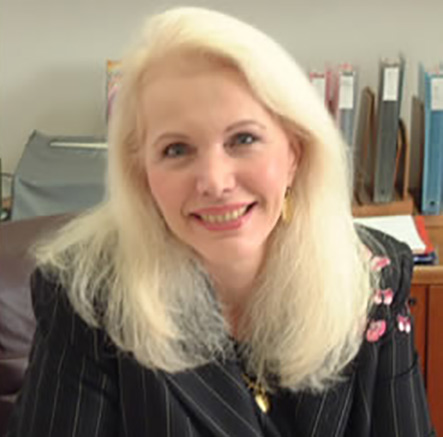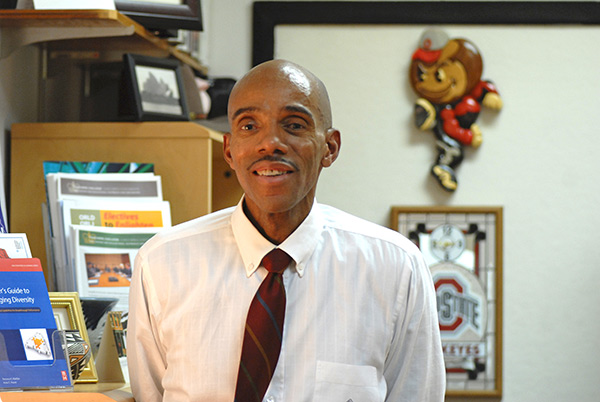Leaders in Leadership
The College’s Nurse Executive and Coaching programs have changed with the times – but high demand remains constant
Teachers College officially defines itself as a graduate school of education, health and psychology, but the College is equally well known around the world for preparing leaders in each of these fields, as well as in the corporate and nonprofit sectors. Two of its longstanding offerings in the Department of Organization & Leadership – a program to prepare nurse executives; and a certification program in executive coaching, jointly run with Columbia Business School – continue to generate high demand as they evolve with the times.
Preparing Leaders to Shape the Nursing Field
TC’s top-ranked Nurse Executive program equips skilled professionals to set the pace

Students in TC's Program for Executive Nurses become nursing school deans, nursing directors and at major hospitals and professors at top universities. Read two of their stories:
Teachers College’s Executive Program for Nurses prepares people who are capable of not merely reacting to those forces, but shaping them. Under the leadership of its director, Professor of Education Elaine La Monica Rigolosi, the program, founded in 1980, ranks first in New York and sixth in the nation in Clinical Nurse Leadership and Nursing Administration. The program’s alumni include major figures in the field such as Gail Weissman, who held nursing leadership positions at Massachusetts General Hospital, Memorial Sloan-Kettering Cancer Center and Mt. Sinai Medical Center, and Kim Mendez, System Chief Nursing Executive at NYC Health & Hospitals. Today’s graduates go on to become deans of prestigious nursing schools, nursing directors at major hospitals and professors at top universities.
[ Learn more about programs in the Department of Organization and Leadership ]
Rigolosi herself is a practicing attorney who holds degrees in human relations and counseling, and medical and surgical nursing administration, and consults widely for health care organizations and other businesses. She has ensured that the program includes courses in ethics, philosophies of education, policy, fiscal management and legal issues, taught by faculty from across TC. (In fact, just about the only area the program does not emphasize is that of clinical nursing skills, which are assumed to be part of applicants’ repertoires.)
“Our graduates, above all, must be able to work and communicate directly with people. They have to serve, face to face, as role models for those whom they lead or teach, so we believe that our teaching must be conducted that way, too.”
— Elaine La Monica Rigolosi
“We don’t water these courses down,” she says of the program’s multidisciplinary offerings. “You won’t find offerings like ‘statistics for nurses’ here.”
But what really sets the program apart, Rigolosi says, is its commitment to a simple but ever more rarely practiced principle: That education is best conducted face to face, and especially so when it relates to leadership and teaching.
“Our graduates, above all, must be able to work and communicate directly with people,” says Rigolosi, who is also the developer of a widely used rating scale to help managers measure their own empathy. “They have to serve, face to face, as role models for those whom they lead or teach, so we believe that our teaching must be conducted that way, too.”
Another nursing program at TC – the College’s Nursing Education doctoral program, launched in Fall 2016 in the Department of Health & Behavior Studies – is conducted exclusively online. “Online learning is a medium that has expanded education’s reach and enabled dedicated professionals to expand their skills and further their careers when they are unable to attend classes in person,” Rigolosi says. “So our two programs are not in competition with one another There’s a critical shortage of highly skilled nursing educators and leaders, and both programs reflect an intense focus on preparing a broader expanse of nurses to fill that gap. And that’s what you’d expect at TC, which, after all, was where the field of nursing education was created.” — Robert Florida
Coaching to Change Minds
Using neuroscience to help executives embrace new ways

That’s Terrence Maltbia’s premise for redesigning the Columbia Coaching Certification Program, a Teachers College-Columbia Business School collaboration that prepares professional coaches of corporate, nonprofit and government clients. “We’re grounding our empirically-based strategies, drawn from many academic disciplines including adult learning and development, clinical and counseling psychology and action research, in emerging neuroscience,” says Maltbia, Associate Professor of Practice in Adult Learning & Leadership.
“We’re grounding our empirically-based strategies, drawn from many academic disciplines including adult learning and development, clinical and counseling psychology and action research, in emerging neuroscience.”
— Terrence Maltbia
More than 500 alums have completed the TC-based coaching program’s entire year-long credentialing, undergoing a one-week residential coach intensive, an eight-month, faculty-supervised field-based practicum and an advanced week-long residential coach intensive capped by written and oral exams. Another 800 open-enrollees have completed the front-end intensive.
As the program celebrates its 10th anniversary, and with Columbia’s new Jerome L. Green Science Center focusing on mind, brain and behavior, Maltbia, himself a corporate veteran, sees a rebranding opportunity. With TC Provost’s funding, he’s exploring the potential relevance to the program of everyone at Columbia who conducts cognitive, behavioral or social neuroscience research, including Nobelists Eric Kandel and Richard Axel. Social neuroscience supports the program’s emphasis on clients learning process rather than a coaching agenda, listening more than talking, facilitating discoveries and turning resistance into teaching moments. “You can encourage compliance, but you can’t legislate commitment,” Maltbia says.
For example, a 2014 study in Neuron found that curiosity improved learning and increased activity in brain regions associated with memory and reward.
Maltbia and his team help students apply such findings. One graduate predicted which managers in her company would disregard accountability training and found that those adopting a “growth mindset” won higher marks from employees.
Which is, as they say in the corporate world, money in the bank. – Joe Levine
Published Tuesday, Oct 3, 2017